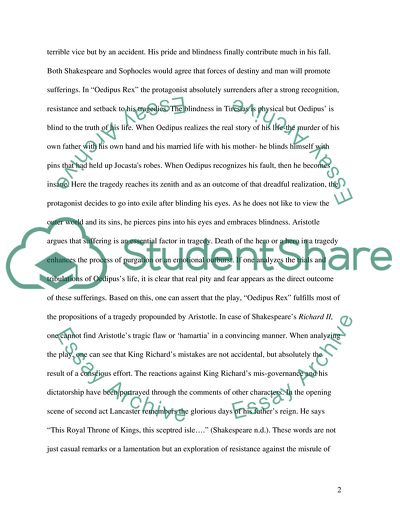Cite this document
(Definition of Tragedy and Its Characteristics Essay, n.d.)
Definition of Tragedy and Its Characteristics Essay. https://studentshare.org/literature/1724111-how-would-you-define-tragedy-you-should-refer-oedipus-rex-by-sophocles-penguin-edition-and-richard-ii-by-shakespeare-any-edition
Definition of Tragedy and Its Characteristics Essay. https://studentshare.org/literature/1724111-how-would-you-define-tragedy-you-should-refer-oedipus-rex-by-sophocles-penguin-edition-and-richard-ii-by-shakespeare-any-edition
(Definition of Tragedy and Its Characteristics Essay)
Definition of Tragedy and Its Characteristics Essay. https://studentshare.org/literature/1724111-how-would-you-define-tragedy-you-should-refer-oedipus-rex-by-sophocles-penguin-edition-and-richard-ii-by-shakespeare-any-edition.
Definition of Tragedy and Its Characteristics Essay. https://studentshare.org/literature/1724111-how-would-you-define-tragedy-you-should-refer-oedipus-rex-by-sophocles-penguin-edition-and-richard-ii-by-shakespeare-any-edition.
“Definition of Tragedy and Its Characteristics Essay”. https://studentshare.org/literature/1724111-how-would-you-define-tragedy-you-should-refer-oedipus-rex-by-sophocles-penguin-edition-and-richard-ii-by-shakespeare-any-edition.


